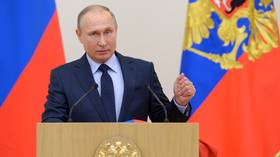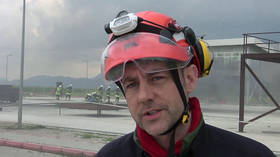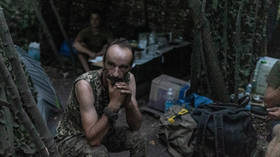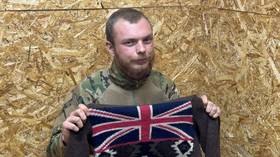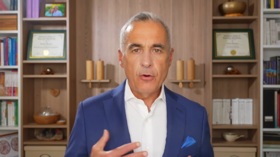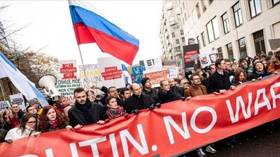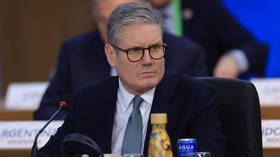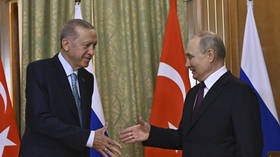It’s just not cricket! - Russia’s sporting ban is being dictated by geopolitics, not justice
Even though it’s been reduced to two years from four, the decision to uphold Russia’s ban from major sporting events, imposed by WADA, is wrong; it is more about promoting geopolitical agendas than sporting fairness.
There’s a great expression in English: ‘It's just not cricket’. It originated from the days when there was a code of decency in British public life. When anyone cheated, or acted like a bounder in sports, business, or in public life in general, the cry would go out, ‘It’s just not cricket!’. The sport of cricket was seen as a metaphor for fair play. If you did get an inside edge and it carried through to the wicket-keeper, you walked. Even if the umpire didn’t raise his finger. If the ball touched the ground before you caught it, you acknowledged the fact.
Politics, too, was run according to this code. It persisted into the 1980s. When Britain lost the Falklands in 1982, the foreign secretary, Lord Peter Carrington, did the honourable thing and resigned.
Of course there were always cads. The people who did cheat. One thinks of Sir Percy Ware-Armitage in the film ‘Those Magnificent Men in their Flying Machines’, who tried to sabotage his opponents’ aeroplanes by handing a hacksaw to his ‘man’ Courtney (played by Eric Sykes). In the follow-up, ‘Monte Carlo or Bust’, Sir Percy’s son, Sir Cuthbert, (also played by Terry-Thomas) gives his main rival in the motor race a sleeping draught in a glass of milk.
In the end, however, Sir Percy and Sir Cuthbert get their comeuppance. Neither wins. Let’s hope the same happens to those supporting draconian bans on Russia in sport.
Everyone surely agrees that those found guilty of cheating, whether it's sabotaging your opponents’ aeroplanes in a London to Paris air race, or taking banned performance enhancing drugs in the 21st century, should be dealt with very firmly by the authorities. But what we’re getting with Russia is collective punishment, when the case that there was a ‘state-sponsored’ doping programme hasn’t been proved.
Let’s just suppose that in ‘Those Magnificent Men’, there’d have been a ban not just on the cheating Sir Percy but on Richard Mays, Harry Popplewell and all the other British competitors? Would that have been ‘cricket’? Of course not. This isn’t either. It’s not hard to see NATO-land fingerprints on the ‘Ban Russia’ campaign. In July 2016, Reuters revealed how the heads of the American and Canadian anti-doping bodies had drafted a letter to the World Anti-Doping Agency (WADA) calling for ALL Russian athletes to be banned from the Rio Olympic Games.
As I wrote last January, “Just imagine if the Russian anti-doping agency had sought to get all US or Canadian athletes banned, whether or not they had been found guilty of cheating.”
The WADA report into alleged Russian ‘state-sponsored’ doping, as I noted, was based solely on the testimony of the former head of Moscow anti-doping laboratory, Grigory Rodchenkov, who defected to America in 2016. Yet, in 2017, WADA chief Craig Reedie admitted that while there were ’hints’ and ’claims’ of evidence of a systematic state-sponsored Russian doping scheme, 95 of the 96 cases of Russian athletes that WADA was investigating had been suspended because “the available evidence was insufficient to support the assertion of an antidoping rule violation.” So why, despite the lack of evidence, is Russia still subject to a blanket ban?
Also on rt.com Keep politics out! International bodies should not be used to further anti-Russian agendasWADA says it’s because of Russian ‘non-compliance’, a phrase which evokes unhappy memories of the claims made against Iraq in the lead-up to the 2003 war. As with Iraq, we can only make sense of what’s going on, and understand why Russia is being singled out for special treatment, if we see the wider geopolitical picture.
Since Russia became more assertive in defending its own interests under President Vladimir Putin, and in particular after it successfully thwarted Western plans for regime change in Syria, it has been the main target of the Western power elites and their stenographers in the media. This state-sponsored Russophobia has taken the form not only of economic sanctions but a relentless campaign to delegitimise Russia and Russian media outlets, waged over a number of different fronts.
Russia has been booted out of the G8. Russian media has been forced to register under the ‘Foreign Agents’ Act in America. RT and Sputnik tweets carry ‘Russia state-affiliated media’ warnings, but the Congress-funded and US government-agency run The Voice of America, doesn’t. Links to articles from RT and Sputnik are routinely removed from Wikipedia as ‘unreliable sources’ by the never-take-a-day-off-not-even-on-Christmas-Day obsessional neocon editor Philip Cross.
The whole thing is multi-spectrum. The aim: to keep Russia in a permanent ‘sin-bin’.
Also on rt.com ‘CAS didn’t fully consider our argument’: Head of Russian Olympic Committee Pozdnyakov on two-year banEven though the campaign to take the 2018 football World Cup away from Russia, spearheaded by the late Senator John McCain (R-Arizona) didn‘t succeed (the tournament was a great success), Russia will not be allowed to compete in the 2022 World Cup in Qatar. And at best, Russian athletes will only be able to participate at the next Winter Olympics in Beijing and the Summer Olympics in Tokyo if they can prove they are ‘clean’ and even then it will only be allowed under a ‘neutral flag’.
The BBC reports: “If their kit displays the name 'Russia' – written in any language – it cannot be more prominent than the words 'neutral athlete' which must be in English. The Russian national anthem cannot be played or sung at any official venue, while flags cannot be displayed either.”
This isn’t ‘sport’, its victimisation. Victimisation of athletes whose only crime is that they are Russian. Unlike those of other nationalities, Russian athletes are deemed guilty until proven innocent. But if they prove they’re not ‘cheats’, then they can’t compete under their national flag. Yet, despite the continued persecution of Russian athletes, the anti-Russian countries of NATO-land still aren’t satisfied. The chief executive of the UK’s Anti-Doping body UKAD, Nicole Sapstead, has said she ‘welcomed’ the Court of Arbitration for Sport’s decision to uphold the WADA ban, but was ’frustrated’ by the reduction to two years.
Whatever happened to the country which gave the world the expression ‘It’s just not cricket’? Because what’s going on is most certainly not fair play, old boy.
Think your friends would be interested? Share this story!
The statements, views and opinions expressed in this column are solely those of the author and do not necessarily represent those of RT.

